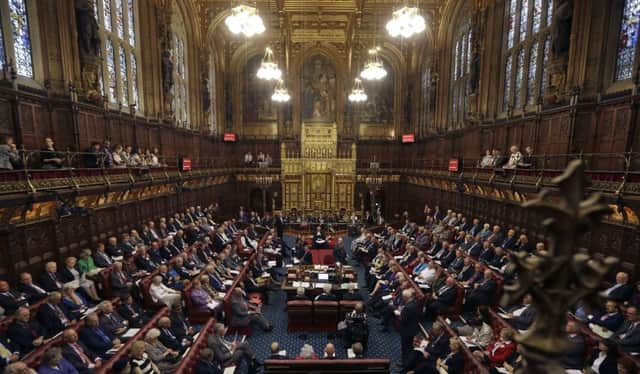Scotland '˜better represented' in the Lords than other parts of the UK


But when it comes to representation in the House of Lords, Scotland is doing better than other UK regions outside of the south-east.
Data published this week by the Electoral Reform Society (ERS) revealed there are 50 peers who base themselves primarily north of the Border - making up nine per cent of the total who chose to reveal their address.
Advertisement
Hide AdAdvertisement
Hide AdGiven Scotland accounts for eight per cent of the UK population, this seems a fair return. But there are more than 200 peers who have not shared where their main home is, meaning the south-east dominance could be higher.
In comparison, the north-west of England has 11 per cent of the population but just five per cent of peers.
It’s a similar scenario in the West Midlands, with just four per cent of peers drawn from nine per cent of the UK total.
The House of Lords, to the shock of few people, is dominated by members from London and the south-east. A full quarter of peers live in the capital, the ERS found, despite it accounting for 13 per cent of the population. A further 19 per cent of peers live in the south-east.
More than a third of peers are former MPs or political staffers, by far the biggest professional background claimed by members.
Why does this matter? It’s no secret the Lords’ reputation has taken a battering since the turn of the century.
All major parties agree there are too many peers - but that doesn’t stop them appointing more each year. Only the SNP steadfastly refuses to nominate any of its members for elevation to the peerage.
“This London-dominated house totally fails to represent huge swathes of the UK,” said ERS chief executive Darren Hughes.
Advertisement
Hide AdAdvertisement
Hide Ad“The Lords is looking increasingly like just another Westminster private members’ club – and it’s not hard to see why when the system is so unbalanced.”
Efforts to introduce a measure of reform by the Lib Dems floundered during their spell in coalition with the Conservatives.
With Brexit now dominating all Westminster proceedings, and a minority Tory government scrambling for every vote, any other plans for reform are unlikely in the short term.